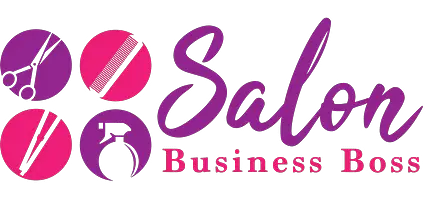In the dazzling world of salons, the burning question echoes: Does success come with a degree in hand or is passion the magic ingredient? Let’s unravel the layers and explore why some believe in passion over paper.
A business degree is not mandatory to open a salon. While business knowledge can be beneficial, practical skills, industry expertise, and a solid business plan are crucial for success. Many great salon owners have built their businesses without formal business degrees.
Passion Over Paper: Dedication to beauty and style

When you step into the realm of salon ownership, it’s not just about snipping hair or painting nails – it’s a commitment to the art of beauty. Passion fuels the drive to create an atmosphere where clients not only look good but feel good too. Unlike a degree hanging on the wall, genuine dedication resonates with customers, building a loyal clientele that appreciates the heart and soul poured into every cut, color, or style.
The magic happens when your eyes light up discussing the latest hair trends or when you effortlessly translate a client’s vision into a stunning reality. Clients can sense the authenticity, creating a connection that goes beyond the surface. In the salon world, it’s the passion for beauty that leaves a lasting impression, not the formal education credentials.
Read more about: Beauty Unleashed: Unveiling the Marketing Magic for Beauty Salons
Practical Skills Matter: Hair, nails, and skincare expertise
In the salon, it’s your hands, not a diploma, that do the talking. Practical skills reign supreme, making the ability to transform hair, nails, and skin into works of art the real currency. Clients seek expertise, creativity, and a personal touch – qualities honed through hands-on experience.
While textbooks may teach theories and techniques, the real classroom is the salon floor. Learning the nuances of different hair types, mastering the art of the perfect manicure, and understanding various skincare needs come from interacting with real clients. It’s the hands-on learning that transforms a stylist into a skilled artist, creating a reputation that attracts clients seeking authentic expertise.
Business Savvy Helps: Basics of budgeting and managing finances
Behind the glamour of the salon chair lies the nitty-gritty of running a business. While a business degree is one way to grasp the basics, many great salon owners have navigated the financial landscape without one. Budgeting, managing finances, and keeping the business afloat require a practical understanding that often comes from on-the-job learning.
As a salon owner, you become the accountant, the manager, and the strategist. It’s about balancing the books, setting prices that reflect both your skill and the market, and ensuring the salon’s financial health. The business savvy you develop is a hands-on, trial-and-error process, proving that real-world experience can be a formidable teacher.
Networking and Industry Insights: Building connections within the beauty community
In the salon business, your network is as valuable as your skillset. Building connections within the beauty community opens doors to opportunities and collaborations. Attending industry events, joining professional groups, and fostering relationships with fellow stylists not only expands your clientele but keeps you in the loop about emerging trends.
Staying updated on trends isn’t about reading them in a textbook; it’s about being on the pulse of what’s happening in the real world of beauty. Through networking, you gain insights into what clients are looking for, discover innovative techniques, and adapt your salon to meet evolving demands. In this dynamic industry, it’s the relationships you cultivate and the knowledge you gain from your peers that contribute to your success.
Creating a Solid Business Plan: Importance of a Clear Vision

When you embark on the salon journey, it’s not just about cutting hair or painting nails; it’s about crafting a roadmap for your salon’s future. A clear vision acts as your compass, guiding every decision and shaping the identity of your space.
Imagine your salon as a canvas awaiting the stroke of your brush. What do you want it to represent? Who is your target clientele? These questions lay the foundation for your business plan. It’s not just about offering services; it’s about creating an experience. Your vision is the heartbeat of your salon, breathing life into the ambiance, services, and overall vibe.
Budgeting is the nuts and bolts of turning dreams into reality. It’s not about just crunching numbers; it’s about aligning your resources with your vision. From salon equipment to product inventory, each penny has a purpose. Creating a budget requires a keen eye on both your aspirations and the practicalities of the business. It’s about finding the sweet spot where creativity meets financial sustainability.
Forecasting is like predicting the weather for your salon – anticipating highs and lows. What trends are on the horizon? Are there seasonal fluctuations in demand? Forecasting allows you to prepare for storms and bask in the sunshine. It’s a tool for adaptability, ensuring that your salon not only survives but thrives in the ever-changing climate of the beauty industry.
Read more about: Behind the Chair Brilliance: Elevating Salon Staff Skills through Training Programs
Learning from Great Entrepreneurs: Insights from Salon Owners without Formal Degrees
Formal degrees might adorn the walls of some businesses, but in the salon world, success often comes from the school of hard knocks. Many salon owners wear their experience like a badge of honor, proving that entrepreneurship isn’t confined to classrooms.
Insights from these seasoned entrepreneurs reveal the essence of perseverance. Building a salon isn’t a walk in the park; it’s a journey through peaks and valleys. It’s the ability to weather challenges, adapt to trends, and keep the scissors cutting even when the shears of adversity try to snip away at your dreams.
Adaptability is the secret sauce in this industry. Trends change, customer preferences evolve, and what’s in vogue today might be yesterday’s news tomorrow. great salon owners without formal degrees understand this rhythm. They dance with the changes, tweak their techniques, and stay in tune with their clients. It’s not about rigid adherence to a plan but about the flexibility to evolve with the ever-shifting tides of the beauty business.
Education Alternatives: Online Courses and Workshops
Not everyone takes the traditional route of a formal education, and that’s perfectly okay. In the digital age, education has donned a new avatar – one that’s accessible, flexible, and tailored to your needs. Online courses and workshops offer a learning experience that fits snugly into the rhythm of a salon entrepreneur’s life.
Think of online courses as your on-the-go mentors, available at your fingertips. They cover a spectrum of topics, from mastering the latest haircut techniques to navigating the labyrinth of social media marketing. The beauty of online learning lies in its adaptability to your schedule. Whether it’s a midnight inspiration or a lunch break revelation, you can absorb knowledge at your own pace.
Workshops are like interactive classrooms where you not only learn but also engage with experts and peers. It’s a hands-on approach that brings the salon community together. Workshops provide a platform to share experiences, troubleshoot challenges, and spark creativity. Tailoring your learning to the specific needs of salon entrepreneurship allows you to pick and choose the skills that align with your vision.
Summary
The journey of salon ownership is a blend of creativity, resilience, and continuous learning. A clear vision, budgeting finesse, insights from those who walked the path, and alternative education avenues form the palette that paints the canvas of your salon’s success. As you navigate the entrepreneurial landscape, remember, that it’s not just about creating a salon; it’s about crafting an experience, one snip and stroke at a time.
Frequently Asked Questions

1. Do I need a business degree to open a salon?
No, a business degree isn’t essential. Passion for beauty, practical skills, and a clear vision matter more. Many great salon owners thrive without a formal business education.
2. How important is a business plan for a salon?
A solid business plan is crucial. It guides your vision, ensures financial sustainability through budgeting, and helps forecast industry trends, fostering adaptability for long-term growth.
3. Can I succeed without a formal degree in the salon industry?
Absolutely. Many thriving salon entrepreneurs lack formal degrees. Success comes from hands-on experience, perseverance, adaptability, and continuous learning, making a formal degree optional, not mandatory.
To learn more on how to start you own salon checkout my startup documents here.
The information provided by SalonBusinessBoss.com (“The Site”) is for general informational purposes only. All information on the Site is provided in good faith, however, we make no representation or warranty of any kind, express or implied, regarding the accuracy, adequacy, validity, reliability, availability or completeness of any information on the Site. Under no circumstance shall we have any liability to you for any loss or damage of any kind incurred as a result of the use of the Site or Reliance on any information provided on the Site. Your use of the Site and your reliance on any information on the Site is solely at your own risk. This blog post is for educational purposes only and does not constitute legal advice. Please consult a legal expert to address your specific needs. Terms and Conditions. (https://salonbusinessboss.com/terms-conditions/)

About the author. Entrepreneur and Salon Business Fan.
Hi! I am Shawn and I am a happy individual who happens to be an entrepreneur. I have owned several types of businesses in my life from a coffee shop to an import and export business to an online review business plus a few more and now I create online salon business resources for those interested in starting new ventures. It’s demanding work but I love it. I do it for those passionate about their business and their goals. That’s why when I meet a salon business owner, I see myself. I know how hard the struggle is to retain clients, find good employees and keep the business growing all while trying to stay competitive.
That’s why I created Salon Business Boss: I want to help salon business owners like you build a thriving business that brings you endless joy and supports your ideal lifestyle.

